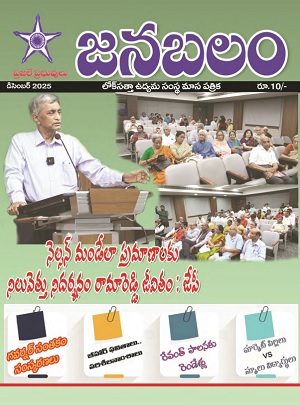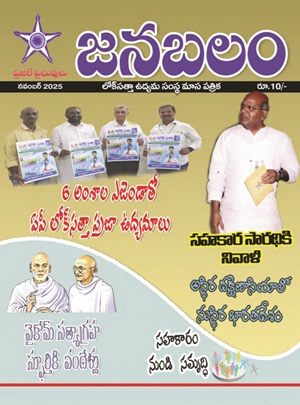Einstein once famously said that the twentieth century was characterized by perfection of means and confusion of ends. Over the past six decades, our politicians have certainly mastered the art of acquiring power without purpose. Power has become an end in itself. In India, this quest for power has been largely disconnected from public purpose. The notion of ethical leadership is limited to a few symbolic leaders to be paraded before the public to enhance saleability of a party. And morality is at best limited to private conduct, and rarely extended to public duty.
In a democracy, there is always a conflict between the slow rate of social pay off that results from sound policies and the short-term political price you have to pay in pursuit of them. True leadership is the ability to reconcile the two and promote long-term public good.
A far more dangerous threat is the loss of purpose for leadership. In the corridors of power, most often all that matters is who is in and who is out; and notions of morality, constitutionalism and public good are inconvenient abstractions. Serious imbalance in exercise of power has accelerated this decline of political morality. If power is defined as the ability to influence events, resources and behaviour for the larger public good, such positive power is severely curtailed in our public sphere. We have created a messy, unaccountable, non-performing system in which there are a million legitimate alibis for political failure. But if power is defined as pelf, privilege, patronage, petty tyranny and plain nuisance value, then every state functionary – from the mighty to the humble – exercises such negative power in ample measure; and there are very few safeguards against abuse of office.
Three factors led to a crisis of leadership in India. First, unlike during freedom struggle, the best minds and hearts have shunned politics and the vacuum is filled mostly by those who converted politics into commerce. Ethical leadership is increasingly marginalized.
Second, our first-past-the-post electoral system gives exaggerated importance to the marginal vote. In our system, one more vote means victory, and one less vote leads to defeat. On top of it, the middle classes habitually stay away from the polling booths, and the poor vote in large numbers as the vote gives them some dignity and bargaining power. The politicians and traditional parties have cynically used the vulnerability of the poor to convert vote into a commodity. In most parts of India, vote is bought with money and liquor. Large expenditure to buy vote does not guarantee victory, but non-expenditure almost certainly guarantees defeat! Even when the vote is not bought, absurd and counter-productive freebies are offered as a party platform. Free rice, free power, free TV, easy money without work – all are the staple of our electoral battles in politics of competitive populism. If vote buying and freebies do not work, there is always cynical exploitation of primordial loyalties in society – caste, region, religion, language. It is easy to rouse passions and fashion a group as a vote bank, by portraying ‘the other’ as the enemy.
Third, in an emerging democracy where constitutional values have not yet been internalized in our political conduct or social mores, power is essentially meant for private gain. Culturally, control of levers of power is seen as a way of promoting private fortunes. Even where direct monetary gain is not involved, arbitrary use of power, nepotism, partisanship, protection of an oligarchy or a group or party, perpetuation of the dominance of the party or a caste or a family – all these have become the acceptable goals of power.
Given these circumstances the rot is not limited to politics, and most institutions of state are perverted and compromised. Bureaucracy and judiciary are increasingly prone to corruption, unethical behaviour and arbitrary exercise of power. Even the Fourth Estate, the media, has not escaped this decline. As all self-correcting mechanisms are blunted, we entered a vicious cycle, with each institution blaming the others. No matter how guilty other players are, the primary responsibility to set things right rests with the political leadership.
Can something be done to restore and promote ethical leadership? The central challenge of transformation is to make ethical leaders electable and honesty sustainable in politics and power. For instance, a shift from first-past-the post system and feudal fiefdoms at constituency level to some form of proportional system where the share of a party’s vote determines its representation will radically alter the incentives, redefine success, and facilitate recruitment of the best citizens into politics. Therefore a combination of proportional representation with certain thresholds of voting to prevent extreme tendencies or caste-based parties gaining ground (say, 5% of vote in a state) at all levels will transform politics and promote public morality, ethical leadership and sound policies.
Combined with this proportional representation, direct election of the executive at local and state levels will reduce vote buying and make honesty compatible with political survival. Today in local councils and states, even an honest leader is forced to resort to immorality and condone corruption in order to retain the support of elected councilors / legislators, without which he will not survive in office. At national level, our vastness, complexity, diversity, and polarities (North vs South, Hindi vs non-Hindi, Hindu vs Muslim) will militate against direct election of the executive. But a sound proportional representation will largely eliminate the distortions of politics at national level. The real challenges of transformation lie at state and local levels.
Once political recruitment improves, ethical leaders are attracted to politics, and honesty becomes an asset and not a liability, we have to address the issues of accountability. Two broad approaches promote accountability and sustain ethical and effective leadership. First, power should be decentralized, and there must be clear links between vote and public good, and taxes and services. Local government empowerment and institutionalizing and strengthening the third tier of federalism will bring back people into the governance process. When power is localized, and at the community level people are allowed to participate in decision making (in a village Panchayat or a municipal ward), authority fuses with accountability and alibis for non-performance disappear. Second, corruption and abuse of power should be swiftly and surely punished. Independent crime investigation, strong, independent and well-coordinated anti-corruption agency, independent and effective prosecution, swift confiscation of assets of corrupt public servants, and special courts for quick disposal of corruption cases will achieve this objective.
None of these is a pipe-dream. We deserve better politics and ethical leadership. Democracy needs to be reformed and strengthened in every generation, and decency and honesty need to be nurtured and promoted with great care. The middle class, media and the moral elites of society should shed mutual mistrust and work together to improve the substance of our democracy. Ignoring politics and reviling politicians is not an option. As Mahatma Gandhi said, politics ensnares you like the coils of a snake, and whichever human endeavour you touch, there is no escape from politics. That is why Plato admonished us long back that “the punishment suffered by the wise who refuse to take part in the government, is to suffer under the government of bad men”
Courtesy: http://indiacurrentaffairs.org/ethics-and-political-leadership-dr-jayaprakash-narayan/
Tuesday, October 26, 2010
Ethics and Political Leadership – Dr Jayaprakash Narayan
Subscribe to:
Post Comments (Atom)





No comments:
Post a Comment